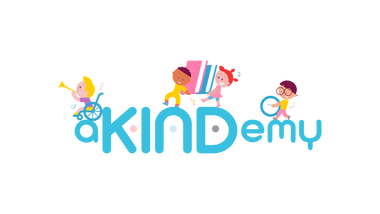
Stories in Bloom
Stories in Bloom
Welcome the New Year with stories that inspire hope, growth, and togetherness! This January, we’ve thoughtfully curated a collection of books that capture the spirit of fresh beginnings, turning January blues into vibrant hues. From heartwarming tales about setting goals and embracing change to cheerful stories of teamwork and friendship, these books are perfect for sparking young imaginations and encouraging positive habits. Let’s start 2025 with smiles, dreams, and a blossoming sense of possibilities!
Our Expert for the month is Gigi Alaqqad. She is a mom of two girls and a Certified Kids Life Coach who has always been passionate about working and connecting with children. She left her career of 10 years in project management and decided to find her purpose in pursuing her kids life coaching certification. Her passion, love, and interest in all children related topics made this such a natural decision.
Gigi works with children ages 6 and above in a private one-on-one basis and group workshops. She has worked with helping children learn life skills related to emotional regulation, self-confidence, communication and social skills, conflict resolution, positive and growth mindset, and more. Her goal is to empower a generation of children to navigate life with confidence and resilience.
As parents, one of the greatest gifts we can give our children is the ability to develop healthy habits and work toward goals. These skills lay the foundation for their future success, resilience, and independence. But where do you start, especially with young children?
The key is to meet them at their developmental stage, make it fun, and lead by example. Whether they’re toddlers just starting to grasp routines, preschoolers beginning to understand cause and effect, or school-aged kids ready to take on their own goals, there are simple ways to introduce these concepts and reinforce them through everyday interactions.
Here’s a breakdown of conversation starters, tips, and engaging activities you can use with your children at different ages to help them create positive habits and work toward achievable goals.
Ages 0-2: Building Foundations
Conversation Starters:
- Let’s clean up together!
- It’s bedtime. What do we do before sleeping?
- Look, it’s time for your morning cuddle and bottle. Let’s make this our special time.
Tips:
- Focus on routines that build security and predictability.
- Use simple and consistent language when describing habits.
- Lead by example. Children this age learn by observing.
Activities:
- Routine Charts: Create a visual chart with pictures (eating, bathing, bedtime, etc..) to create consistency.
- Modeling Tasks: Narrate what you’re doing. For example, tidying toys or brushing teeth, and encourage them to join.
- Rewarding Habits: Celebrate small achievements with high five or hugs, reinforcing positive behavior.
Ages: 3-5: Introducing Simple Habits and Goals
Conversation Starters:
- What can we do every morning to have a great day?
- Let’s think of a fun way to clean up our toys after playtime!
- What’s one thing we can do every night to get ready for bed?
Tips:
- Make habits fun and relatable through play. Play is the language of childhood and especially in this age group. A bit of silliness and playfulness can go a long way.
- Introduce short-term goals they can accomplish in a day or week.
- Use praise and encouragement rather than pressure.
Activities:
- Copy Me: Model a habit (for example, breathing when having a big emotion or meditation) and have the child imitate you.
- Storytime Goals: Read books about characters achieving something through small steps.
- Habit Roleplay: Act out daily routines together, like pretending to be a “teeth-cleaning superhero or princess.
Ages: 6-9: Setting and Achieving Goals
Conversation Starters:
- What’s something you want to get better at this week/month?
- What’s one habit we can work on together, like meditating or making sure our toys are tidy before going to bed?
- How can we make a plan to achieve your goal?
Tips:
- Help them break goals into smaller, manageable steps.
- Emphasize effort and progress over perfection.
- Use visuals like charts or journals to track habits and goals.
Activities:
- Goal Chart: Create a weekly chart where they set a goal (example: reading for 10 minutes a day) and check it off daily.
- Family Habit Challenge: Pick a habit everyone works on together (example: no screen time or gadgets on the table for everyone while eating dinner together). Celebrate as a team!
- Dream/Vision Board: Help them create a simple board with pictures and words that represent their goals (example: drawing or sticking a photo of a football if they want to practice and improve their football skills.)



